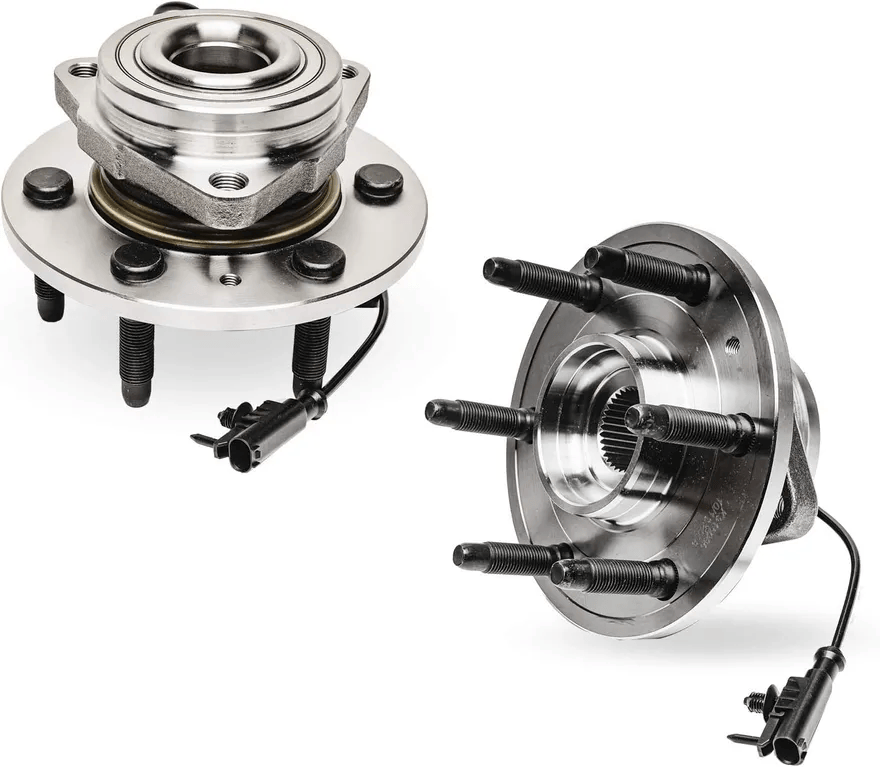When it comes to vehicle safety and performance, many drivers overlook one critical part: the hub bearing. This component plays a major role in supporting your car’s weight, ensuring smooth wheel rotation, and maintaining proper alignment. Whether you're a car enthusiast or an average driver, understanding the importance of hub bearings can help prevent major vehicle issues and extend your vehicle’s lifespan.
In this guide, we’ll explain what a hub bearing is, how it functions, common warning signs of failure, and why choosing a quality part is crucial for safety and performance.
What Is a Hub Bearing?
A hub bearing is a unit that connects your vehicle’s wheel to the axle. It allows the wheels to spin freely while supporting the weight of the vehicle. Unlike traditional bearings, hub bearings are often sealed units that combine the bearing and hub into one assembly.
They are typically located at each wheel and are essential to the suspension system. These bearings also house the ABS (anti-lock braking system) sensors in modern cars, making them essential for both mechanical function and electronic systems.
Functions of a Hub Bearing
A properly functioning hub bearing ensures:
-
Smooth Rotation – Allows wheels to rotate with minimal resistance.
-
Weight Support – Handles the load from the car and passengers.
-
Stability – Maintains wheel alignment and handling performance.
-
Safety Systems Integration – Works with ABS sensors for braking efficiency.
If a hub bearing fails, it can affect braking, steering, and stability—posing a serious safety risk.
Warning Signs of a Faulty Hub Bearing
Early detection can save you from costly repairs or dangerous driving situations. Look out for:
-
Grinding or humming noise coming from the wheels while driving.
-
Uneven tire wear caused by misaligned wheels.
-
Loose or vibrating steering wheel, especially at higher speeds.
-
ABS warning light if sensors integrated into the hub fail.
Ignoring these signs can result in complete bearing failure, which may lead to the wheel detaching from the vehicle.
Why High-Quality Hub Bearings Matter
Choosing a premium-quality hub bearing is essential for long-term performance and safety. Here’s why:
-
Durability – Resistant to heat, pressure, and water ingress.
-
Precision Fit – Ensures perfect alignment and reduces vibration.
-
Low Maintenance – Sealed units don’t require regular lubrication.
-
Enhanced Safety – Better response with braking and cornering.
Substandard bearings wear out faster and may cause costly suspension or wheel damage.
Applications Across Vehicles
Hub bearings are used in:
-
Passenger cars
-
SUVs and light trucks
-
Commercial vehicles
-
Heavy-duty applications
Regardless of the vehicle type, hub bearings must be strong and reliable to handle stress from different terrains and loads.
Conclusion:
The hub bearing might be out of sight, but it should never be out of mind. It's a vital component that affects your vehicle's safety, handling, and performance. Regular inspection and timely replacement of faulty bearings can keep your car running smoothly and protect you from unexpected breakdowns.
Whether you’re replacing a worn-out unit or upgrading for better performance, always choose high-quality hub bearings from trusted suppliers. Your safety—and that of your passengers—depends on it.

